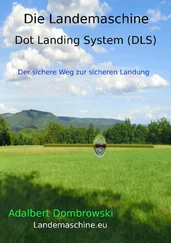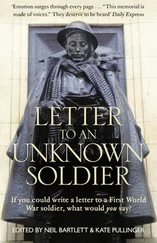He didn’t.
“Well,” Harriet said, “I thought I should tell you.” She stopped. “A lot of time has gone by.”
“Too much time,” said George.
“What have you been doing all these years?” Harriet asked. How could she have been so rash? Why had getting in touch with him seemed like a good idea? A reaction to what had happened with Michael? Stupid. Childish. She still hadn’t talked to Michael since he arrived home; she hadn’t told him she was meeting George Sigo.
“What are you doing here, Harriet?” He moved closer to where she was sitting, took hold of her shoulder and squeezed it hard. “Tell me,” he said, “where she is.”
Harriet winced and attempted to pull away.
“Hey, George.” The barman had come out from behind the bar. He was standing behind George, who turned to look at him, allowing Harriet to free herself from George’s grip. She moved around the table to a stool on the other side. “How’ve you been lately?” the barman continued.
George’s tone softened slightly. “I’m fine, Craig,” he said. “Doing fine.”
“Are you taking your meds?” Craig asked. “You know you’re not allowed in here unless you’re taking your meds and keeping your appointments.” Craig looked at Harriet and smiled, as though this was common knowledge. “He forgets to take them sometimes. Then he ends up back on the ward and banned from here. And no one’s happy.”
“Oh for fuck’s sake, Craig. You’re not my daddy.” George reached for his jacket. He pulled a hospital card out of the inside pocket and handed it to the barman.
Craig looked at it. He looked at Harriet, nodding, as though they were complicit in some way. “It’s such a shame you need to leave. But you’re late, aren’t you? For that thing.”
“Late,” said Harriet. She understood. She stood up and put on her coat. “I am late. Thanks for reminding me.”
“No problem,” the barman said. “Another time, eh, George?”
Harriet, flustered, dropped her bag. She stooped to pick it up, and as she stood, George grabbed her once again. The young barman took hold of George’s arm.
“George,” Craig said, his voice full of warning.
George pushed his face close to Harriet’s. She could smell his breath: yeasty, like rising bread.
“What’s her name?” he asked.
“Who?” said Harriet, but she knew who he meant.
“She’ll be twenty-four now. What’s her name?”
The barman gave George’s arm a yank, which succeeded in throwing him off-balance. He let go of Harriet.
She walked toward the door as quickly as she could. She opened it wide and sunlight flooded into the dim bar. As she crossed the threshold, she heard George Sigo speak once again. “I know your name now,” he said. “I know where to find you .”
It took Yacub the whole day to walk across Dubai from the labour camp to the hotel where Imran conducted his business. Dubai is not a pedestrian-friendly city. Even Karachi with its broken-down pavements and roads, its sandbagged and gun-turreted buildings, was easier to get around by foot. Yacub mostly walked in the dirt at the side of the highway; cars rushed by, the hot churning wind slammed against him, and the sun beat down on his bare neck. He was wearing his oldest shalwar kameez, but the thin material still felt too heavy.
The hotel was enormous, set between the road and the canal, surrounded by vast landscaped grounds and building sites. The front entrance was accessed via a long drive; this was not the way the hotel workers normally arrived. Yacub saw a lorry turn in farther along the road, so he made his way round the side of the hotel, where he found the trade entrance. The sun was setting as he slipped into the hotel behind a man pushing a shrink-wrapped pallet of goods. He walked through the unadorned service area, down its battered corridors until he found a men’s room. There, he gulped water direct from the tap before washing in the sink; from his carrier bag, he retrieved his only decent pair of Western-style trousers and his only good shirt, leftover from his time working in Karachi.
Once dressed, he inspected himself in the mirror over the sink. Now he looked like a lowly clerk, which was better than a lowly labourer.
Yacub grabbed his plastic bag of dirty clothes and made his way through the hotel. Last night Imran had declared that the twenty-eighth floor of this hotel belonged to him, and Yacub remembered this as he made his way from the service area into the plush, air-conditioned splendour of the hotel itself. The carpet was thick beneath his feet and the foyer was populated by giant floral displays scenting the already perfumed air. He found his way to the elevators. As he stood there, unsure of what to do next, one of the sets of doors opened and a European man in a suit got out. Yacub stepped inside. A European woman, also wearing a suit, was in the elevator already; she frowned at him. Soft music played in the background. The woman got out at the twentieth floor. The doors closed. For a moment, nothing happened. The music continued to play but the elevator didn’t move. Yacub pressed the number 28.
On the twenty-eighth floor the doors opened to the sound of pulsing music. Yacub hesitated, then stepped out as the doors began to slide shut. To his left, a set of double doors were slightly ajar. Yacub stood at the threshold, pushed the door a little more open and looked in. The large room was kitted out like a nightclub, with a bar along one wall, tables and chairs around a small dance floor where one woman danced slowly. Coloured lights flashed overhead while low lamps spread minimal light through the rest of the room. A small crowd of European men stood by the bar. As he stared through the darkness, Yacub made out a seating area with plump sofas and low chairs and a number of Asian women sitting on the sofas, as well as on the high stools off to one side of the dance floor. Yacub stepped into the room and stood still as the lights flashed blue, red and green across his white shirt.
Two of the Pakistani girls from yesterday’s limo were seated on high stools near the door. “Hello, sir,” one said, smiling sweetly, and Yacub could see she recognized him. He dipped his head in her direction. At that moment, Imran strode into the room.
“Okay,” he said, looking at Yacub. “Take this receipt down to the service area. A porter will help you bring the order up.”
Yacub took the piece of paper. He felt stunned by the coloured lights and the sofas and the girls—the entire room and the world it contained.
“I know,” Imran said, and paused. “You missed the airlift.”
Yacub swallowed hard, and looked down at the receipt he was holding.
“Go on. Get on with it.”
The plan Michael made during the flight from Toronto was simple: say nothing.
He had no intention of leaving Harriet, he had no intention of moving to Toronto and taking up with Marina. He had no desire to explain himself. He couldn’t explain himself, in fact. He had no idea why he’d done what he’d done. Nothing had changed. Nothing was going to change. He was not going to explain a thing.
While Michael was in Toronto, he watched CBC news and listened to CBC radio; he read The Globe and Mail and National Post newspapers; he bought The Walrus magazine. He watched Hockey Night in Canada with Marina. He measured his Canadian pulse, his Canadian heart rate. It beat on, as regular as ever. He wasn’t sure what exactly made him Canadian, but the unexpected week in Toronto confirmed it: he was. But he lived in London; London was his life.
Marina had been upset when they said goodbye. “I wish we hadn’t done this,” she said.
Читать дальше












